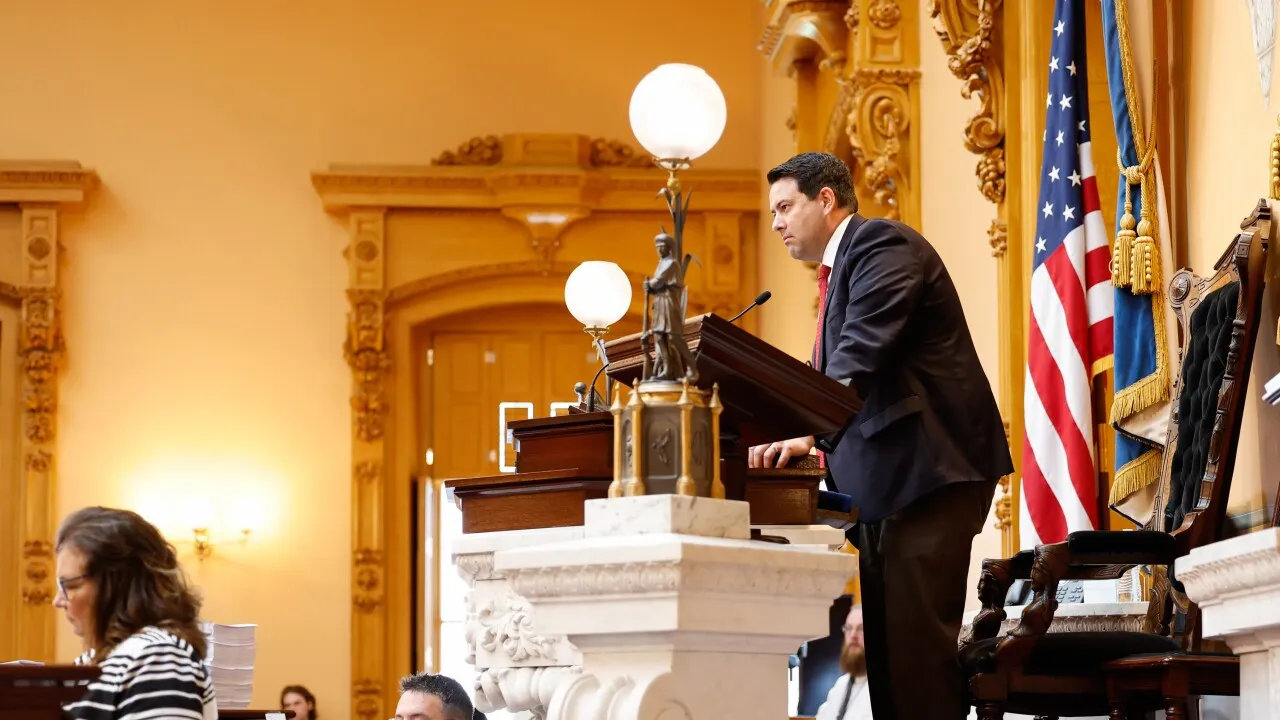COLUMBUS, Ohio — On Tuesday, Ohio's Senate approved a two-year state budget totaling $60 billion, which sparked fierce debate over its controversial priorities: a generous $600 million grant for building a new stadium for the Cleveland Browns, significant tax cuts for the state's wealthiest residents, and modest increases in funding for public schools. This document, which will reach $200 billion after federal funds are included, reveals a deep split in political views on where Ohio's resources should be directed. Bill No. 96, largely approved along party lines (23–10), became a battleground between ambitious economic projects and the needs of education and social programs that have been overshadowed.
Stadium at taxpayers' expense
One of the loudest points in the budget was the allocation of $600 million for a new Cleveland Browns stadium in the suburb of Berea. Unlike the House of Representatives' proposal, which involved issuing bonds for this amount with payments reaching $1 billion in interest, the Senate chose a different route. The funds will be taken from the state's Unclaimed Funds Reserve — $4.8 billion, including forgotten bank accounts, rental deposits, or unused insurance policies. "It's a sensible way to avoid debt burden," — said Senator Jerry Cirino, head of the Finance Committee, arguing that the investment will pay off through taxes from the new stadium.
However, critics, including Senate Minority Leader Nikki Antonio, call this decision a "blatant example of misplaced priorities." "If we can find $600 million for a football stadium, why can't we find funds for our schools?" Antonio asked at a press conference, noting that the budget only partially fulfills the needs of the 2021 Fair School Funding Plan (FSFP). Democrats submitted 423 amendments to the budget, including one to cancel stadium funding, but their proposals did not garner support in the Senate, where Republicans hold a supermajority of 24–9.[](https://ohiocapitaljournal.com/2025/05/21/ohio-senate-democrats-hope-to-fully-fund-public-schools-not-fund-browns-stadium-in-state-budget/)
Governor Mike DeWine, who previously opposed the stadium financing debt model, expressed cautious optimism about the Senate's proposal but did not confirm whether he would sign the budget without changes. Insiders suggest that DeWine may exercise his veto power on specific articles if he believes the project overburdens the state budget.
Education: promises unfulfilled
Education became another battleground. The Senate's budget proposes an additional $100 million for public schools compared to the House proposal, bringing the total increase to $550 million. However, this only partially meets the needs of the FSFP, which, according to experts, requires between $666 million and $800 million for full funding. "We are approaching fair funding, but it's not enough," — Antonio said, pointing out that many schools, especially in poorer districts, continue to rely on local property taxes, which the Ohio Supreme Court declared unconstitutional back in the early 2000s.
The Senate also made changes to the "guarantee" funding system by abolishing mechanisms that protected schools from cuts if student numbers decrease. Instead, additional funds will only be allocated to districts with high academic performance or those demonstrating growth. This decision faced criticism from teachers' unions, who argue it punishes schools in deprimed regions. "It's like changing the rules in the middle of the game," — Melissa Cropper of the Ohio Federation of Teachers said.
Moreover, the budget increased the reserve fund limit for schools to 50% of their annual operating budget, allowing districts to hold more funds for capital projects such as constructing new schools. However, this also means surpluses will be returned to taxpayers, complicating long-term planning for schools.
Tax breaks for the wealthy
Another contentious point is the introduction of a flat income tax rate of 2.75%, eliminating the higher rate of 3.5% for those earning over $100,000. It is estimated to result in a loss of $1.1 billion from the state's total revenue. Senator Cirino defends this move, stating that tax cuts will stimulate economic growth and attract wealthy residents to Ohio. "States with a flat tax thrive," — he said, citing examples from other states.
However, critics, including Policy Matters Ohio, refer to this as a "gift to the wealthiest at the expense of the middle class." The tax cuts coincide with cuts to Medicaid, libraries, lead poisoning programs, and food banks, disproportionately affecting low-income residents. "Librarians and teachers will pay the same tax rate as professional athletes," — Bailey Williams of Policy Matters Ohio noted.
Conditional scholarships
Among the positive aspects is the expansion of the governor's merit-based scholarship, which will now provide $20,000 to the top 2% of high school graduates for college education in Ohio. However, there is a condition: recipients must remain in the state for three years after graduation or else they will have to return the funds. According to Cirino, this proposal aims to retain talent in Ohio, but critics argue it may restrict young people's freedom of choice.
Looking to the future
The budget, which must be finalized by June 30, is now transferred to the conference committee, where the Senate and House of Representatives will attempt to reconcile their differences. Governor DeWine, known for his tendency to veto individual articles, will oversee the process. For many Ohio residents, especially in Cleveland, the budget has become a symbol of a broader struggle: between economic ambitions supporting projects like the Browns Stadium and urgent needs for education and social services.
“This is a budget that favors football fields over classrooms,” — summed up Antonio, standing in front of the Ohio State Capitol. As Ohio prepares for the economic growth promised by stadium supporters, many are asking: at what cost?



